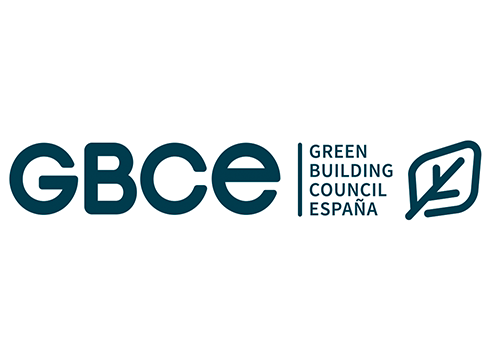VELTIS® con el apoyo de TECNALIA participa en el Proyecto Europeo RETIME, siendo uno de los proyectos Europeos más relevantes relacionados con el cambio climático y su afección al sector inmobiliario.
Para ello forma parte de un consorcio integrado por 18 entidades públicas, Instituciones, Universidades y empresas privadas. Formada por Administraciones Europeas como Lisbon City Council, Zilina self-governing región, con Institutos como el Luxenbourg Institute of Science and Technology, Institute of Baltic Studies y Universidades como University of Zilina, Technical University of Denmark, University of Porto Engineering.
VELTIS aportará al proyecto su expertise como empresa de referencia a nivel Europeo en relación con los riesgos que afectan al sector inmobiliario y su rating inmobiliario vinculado.
Project Acronym: RETIME – Urban Adaptation and Alert Solutions for a TIMEly (re)Action
Horizon Europe
Solutions for the identification of vulnerable buildings and people-centric built environment and for improving their resilience in disruptive events and altered conditions in a changing climate (Built4People Partnership)
https://ec.europa.eu/info/funding-tenders/opportunities/portal/screen/opportunities/topic-details/horizon-cl5-2023-d4-02-02

| WORK PACKAGE | |||
| No. | TITLE | START | END |
| WP1 | Best practices on multi-risk assessment and adaptation solutions, resilience cost business models in three pilot contexts | M01 | M12 |
| WP2 | Pilot site socio-cultural, economic contexts and stakeholder engagement strategy development | M2 | M40 |
| WP3 | Cross-scale scenario models and triggers for urban vulnerability resilience interventions of real-life and virtual pilots | M02 | M48 |
| WP4 | Infrastructure Resilience plans and innovative adaptation measures for vulnerable urban areas at risk | M04 | M48 |
| WP5 | Demonstrations across the pilot areas | M13 | M48 |
| WP6 | Communication, Dissemination, and Innovation Exploitation | M02 | M48 |
| WP7 | Project Management and Coordination | M01 | M48 |

TAREAS DONDE VELTIS PARTICIPARÁ
T1.4 – Resilience cost, business models, and inequalities identification (M05-M45)
Leader: TEC; Participants: UNIZA, KAJO, ICONS, ISCTE, CML, TEAM, TCC, ŽSK,
This task aims at developing a business model framework that would support the marketability and adoption of resilience-based projects. The activity includes a framework for optimal intervention valuation: i) the analysis and integration of resilience cost estimation frameworks CAPEX and OPEX (materials, construction, maintenance and energy costs ); ii) identification and estimation of potential revenues generated by the resilience and adaptation pathways (direct based on energy savings and estimated according to climatic disruption cost saving potentials); iii) incorporation of social dimension in the valuation; and iv) update of asset value after the intervention.
This framework will allow to assess the business potential and its feasibility. In a second step, the potential business models will be analysed incorporating measures and alternatives that can support the implementation of resilience actions, such as, i) legal framework (from T1.2); ii) analysis of resilience fiscal frameworks (use of insurance and risk transfer mechanisms, e.g., insurability and insurance costs as a function of the degree of resilience); value creation; national, regional and local historical and fiscal frameworks supporting climate resilience); iii) definition of a typology of potential inequalities fostered by urban planning and policy design, climate changes in built environments (exposure inequalities, adaptation capacity inequalities, benefit inequalities) (using data from T2.1, T2.2, T3.1); iv) relevance and opportunities analysis for three pilot areas. A co-creation concepts for business model generation are also developed to feed inputs to T3.3, T4.2, and T4.4. It will be detailed and tested in T5.2 (TBC).
Deliverables
D1.4 Analysis of economic and social feasibility of the adaptation strategy and associated business model
T5.3 – Impact Assessment and Cost/Benefit analysis of the demonstrations (M36-M48)
Leader: TEC; Partner: UNIZA, CML, TCC, ŽSK
The overall results of the RETIME project will be evaluated by means of a simplified impact assessment. The risk and vulnerability variations will be assessed and quantified for the developed pilot sites and scenarios, before and after the implementation of the developed technologies. This simplified impact assessment will be based on the results obtained throughout the different pilot sites demonstrations, in Lisbon, Žilina and Tartu, with the different stakeholders (building owners, building managers, members of Resident Associations, climate-related expert). The assessment will also incorporate the results of impact of the mitigation actions identified and implemented in T3.4. Areas of success and areas for improvement will be identified. Based on the obtained feedback and on the business model defined in T1.4, the benefits of the project outcomes per stakeholder can be estimated. The main objective of this overall procedure is to provide to local, national and international levels specific and scientifically demonstrated public policy recommendations. Furthermore, this task aims at providing already existing recommendations for upscaling and replicability of the project solutions in other sites in Europe. Comprehensive guidelines and policy instruments will be developed to effectively implement the business models and ensure the resilience of the project extends beyond its timeframe.
Deliverables
D.5.3. Report on the Impact Assessment and cost/benefit analysis on the demonstrations





